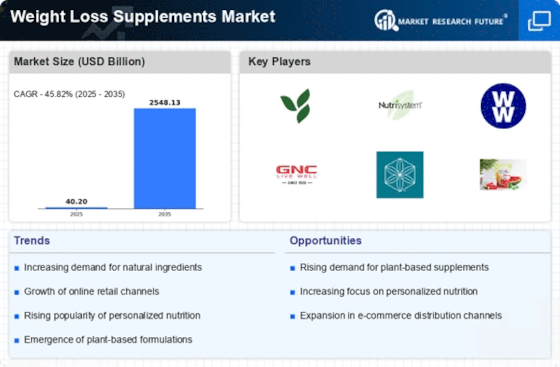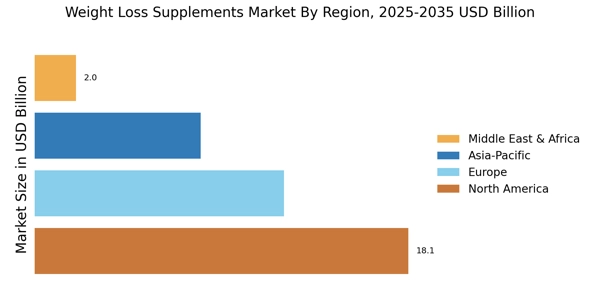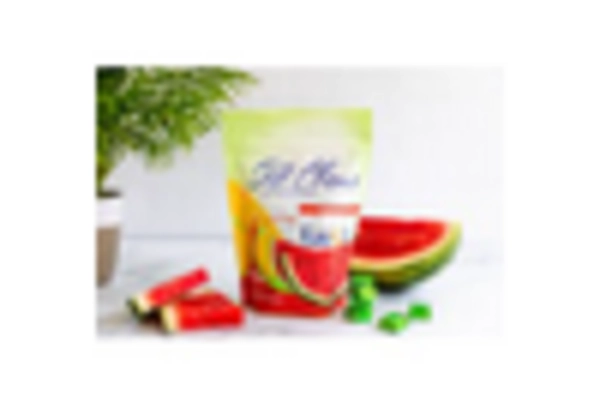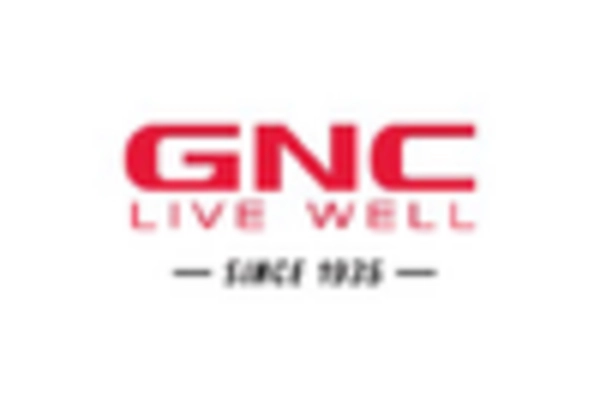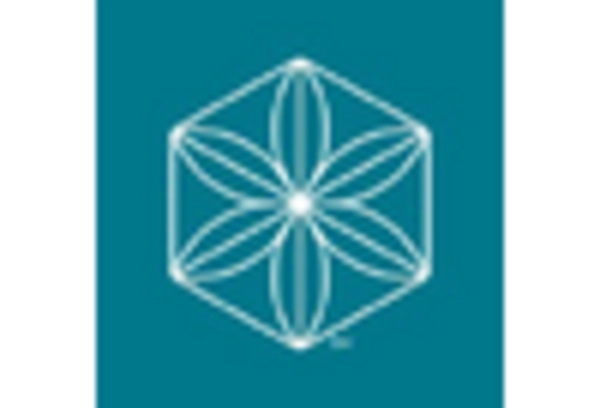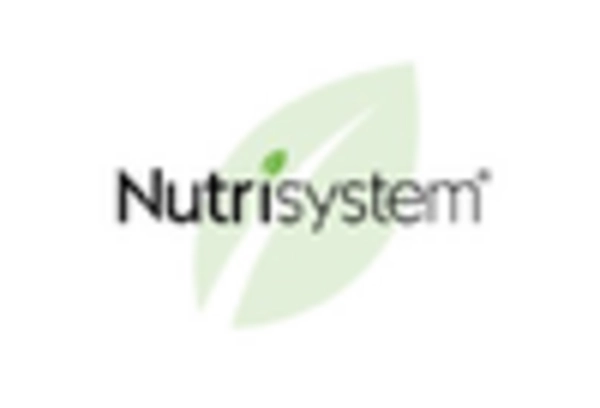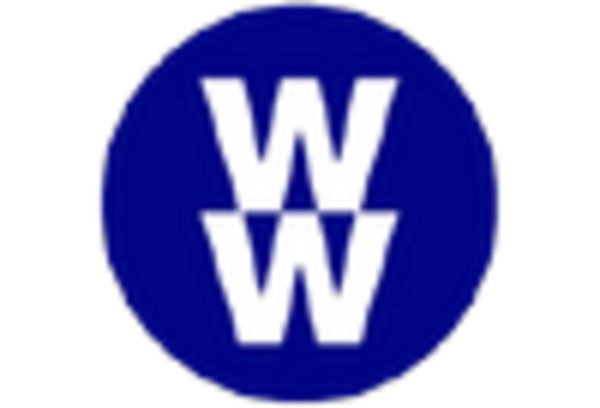Increasing Obesity Rates
The prevalence of obesity continues to rise, prompting a growing demand for effective weight management solutions. According to recent statistics, approximately 36% of adults are classified as obese, which has led to an increased focus on health and wellness. This trend is driving the Weight Loss Supplements Market, as consumers seek products that can assist in achieving their weight loss goals. The urgency to combat obesity-related health issues, such as diabetes and cardiovascular diseases, further fuels the market. As awareness of the health risks associated with obesity spreads, the demand for weight loss supplements is likely to escalate, creating opportunities for innovation and product development within the industry.
E-commerce Growth and Accessibility
The rise of e-commerce has transformed the way consumers purchase weight loss supplements, making them more accessible than ever. The Weight Loss Supplements Market is benefiting from this trend, as online platforms provide a convenient shopping experience. With the increasing penetration of the internet and mobile devices, consumers can easily compare products, read reviews, and make informed decisions. This shift towards online shopping is expected to continue, with e-commerce sales projected to grow significantly in the coming years. As a result, brands that effectively leverage digital marketing strategies are likely to capture a larger share of the market, enhancing their visibility and sales.
Shift Towards Preventive Healthcare
There is a noticeable shift towards preventive healthcare, with individuals increasingly prioritizing their health and well-being. This trend is reflected in the Weight Loss Supplements Market, where consumers are actively seeking supplements that not only aid in weight loss but also promote overall health. The market is projected to grow as more people recognize the importance of maintaining a healthy weight to prevent chronic diseases. In fact, the preventive healthcare market is expected to reach substantial figures in the coming years, indicating a robust interest in health-oriented products. This shift encourages manufacturers to develop supplements that align with consumers' health-conscious lifestyles, thereby enhancing their market presence.
Rising Awareness of Nutritional Ingredients
Consumers are becoming more discerning about the ingredients in their weight loss supplements, leading to a demand for transparency and quality. The Weight Loss Supplements Market is witnessing a trend where individuals prefer products with natural and scientifically-backed ingredients. This shift is likely influenced by increased access to information regarding the benefits and risks associated with various supplements. As a result, brands that prioritize clean labels and provide detailed ingredient information are gaining traction. The market is responding to this demand by innovating formulations that emphasize natural components, which could potentially enhance consumer trust and loyalty.
Influence of Social Media and Fitness Trends
Social media platforms play a pivotal role in shaping consumer perceptions and trends within the Weight Loss Supplements Market. Influencers and fitness enthusiasts often promote various supplements, creating a buzz around specific products. This phenomenon has led to increased consumer interest and engagement, as individuals seek to emulate the lifestyles of those they follow. The impact of social media on purchasing decisions is profound, with many consumers relying on online recommendations. As fitness trends evolve, the market is likely to see fluctuations in demand for specific supplements, driven by the latest health fads and influencer endorsements.


